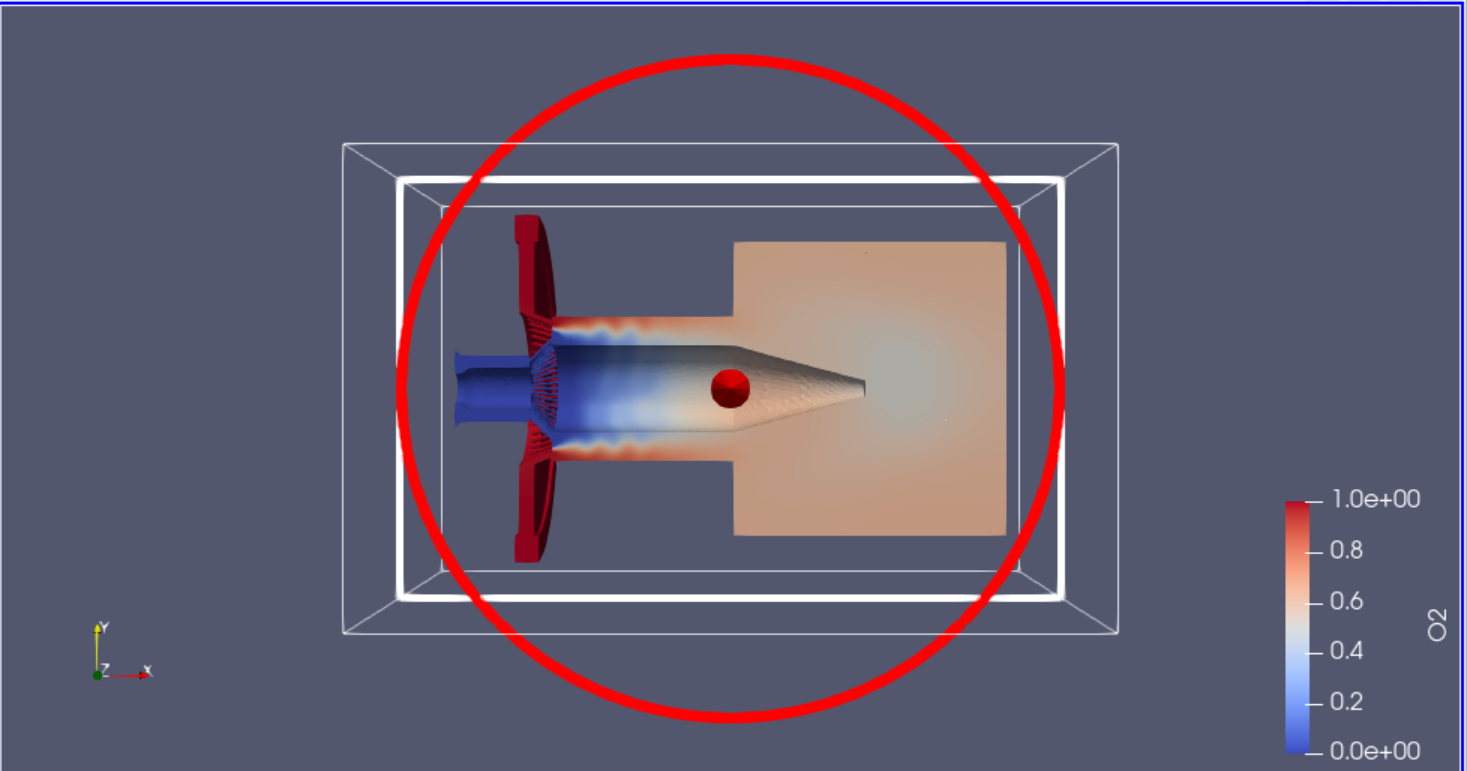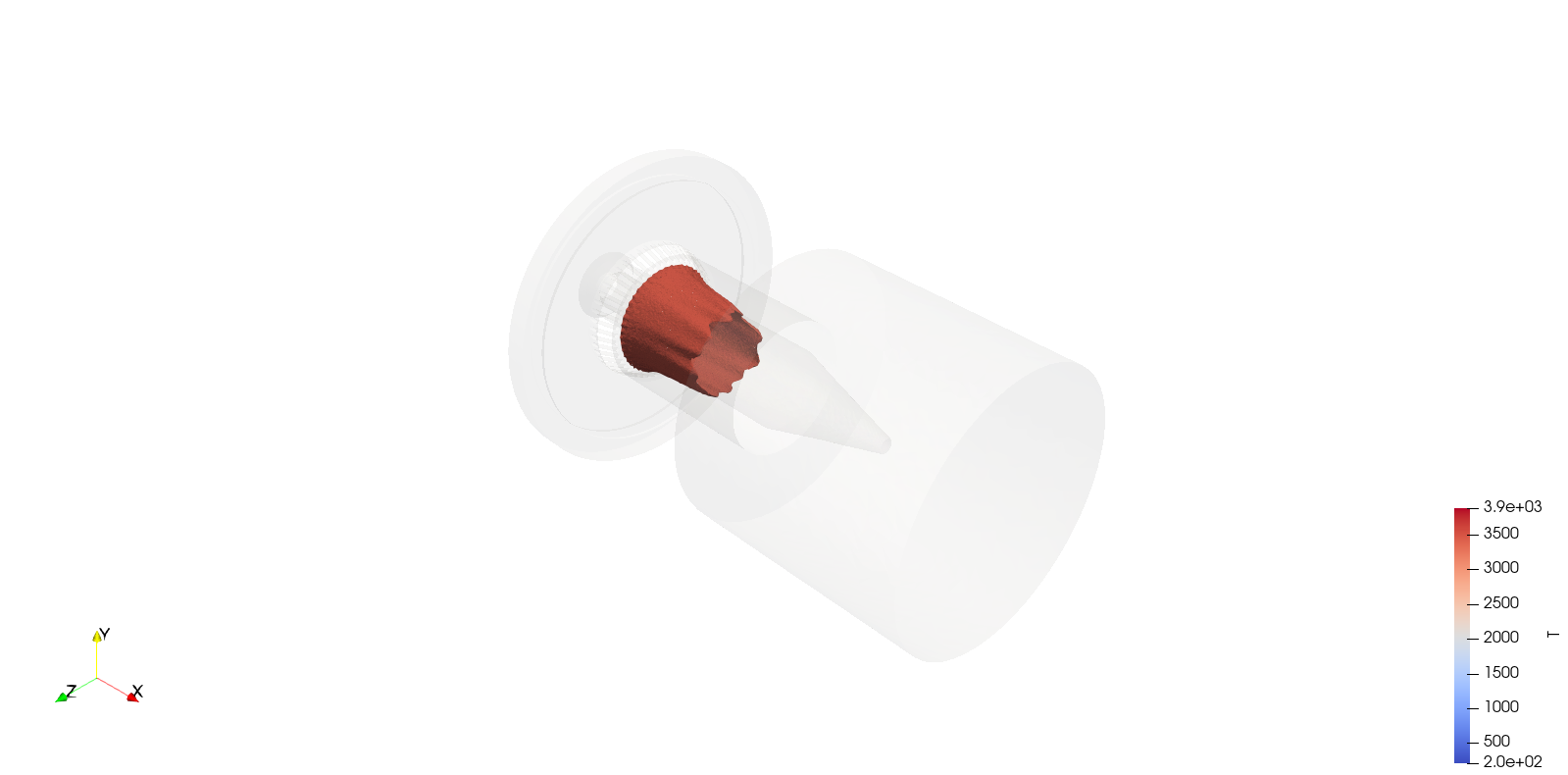

This video contains proprietary information and cannot be shared publicly at this time.
Figure 1

Figure 2

Team 67
Team Members |
Faculty Advisor |
Dwaritha Ramesh |
Xinyu Zhao Sponsor Acc Masters |
sponsored by

Detonation for Small Scale In-Space Propulsion
This project is a simulation-based investigation undertaken as part of the Accelerated Masters program and aims to provide significant proof of the feasibility of Rotating Detonation Engines (RDEs) for use in small-scale space applications. Currently, most satellites and small spacecraft use conventional liquid rocket engines for propulsion. However, the U.S. Air and Space Forces have emphasized that enhanced surveillance of cislunar space is essential to expand the capabilities of the space warfighter. This necessitates the introduction of more efficient and highly versatile propulsion systems. RDEs (which produce thrust through the propagation of detonation waves around an annulus) have been identified as a promising mechanism for small-scale applications, as they can be up to 10% more efficient than conventional rocket engines, significantly lighter, and mechanically simpler. In this project, computational fluid dynamics (CFD) simulation is used to study heat transfer in a small RDE with the objective of enhancing understanding of detonation, considering the range of complexities (such as curvature effects and added thermal stresses) associated with the small device scale. This simulation-based project is complemented by an experimental study at the University of Alabama in Huntsville, the results of which will be analyzed to further the overarching goal of contributing to a discussion on the feasibility of using RDEs for small scale in-space propulsion. Within the Senior Design scope, the focus of this project has been to produce high-quality meshes of a complex geometry and baseline reacting flow data to enhance future analysis and confirm boundary conditions.
